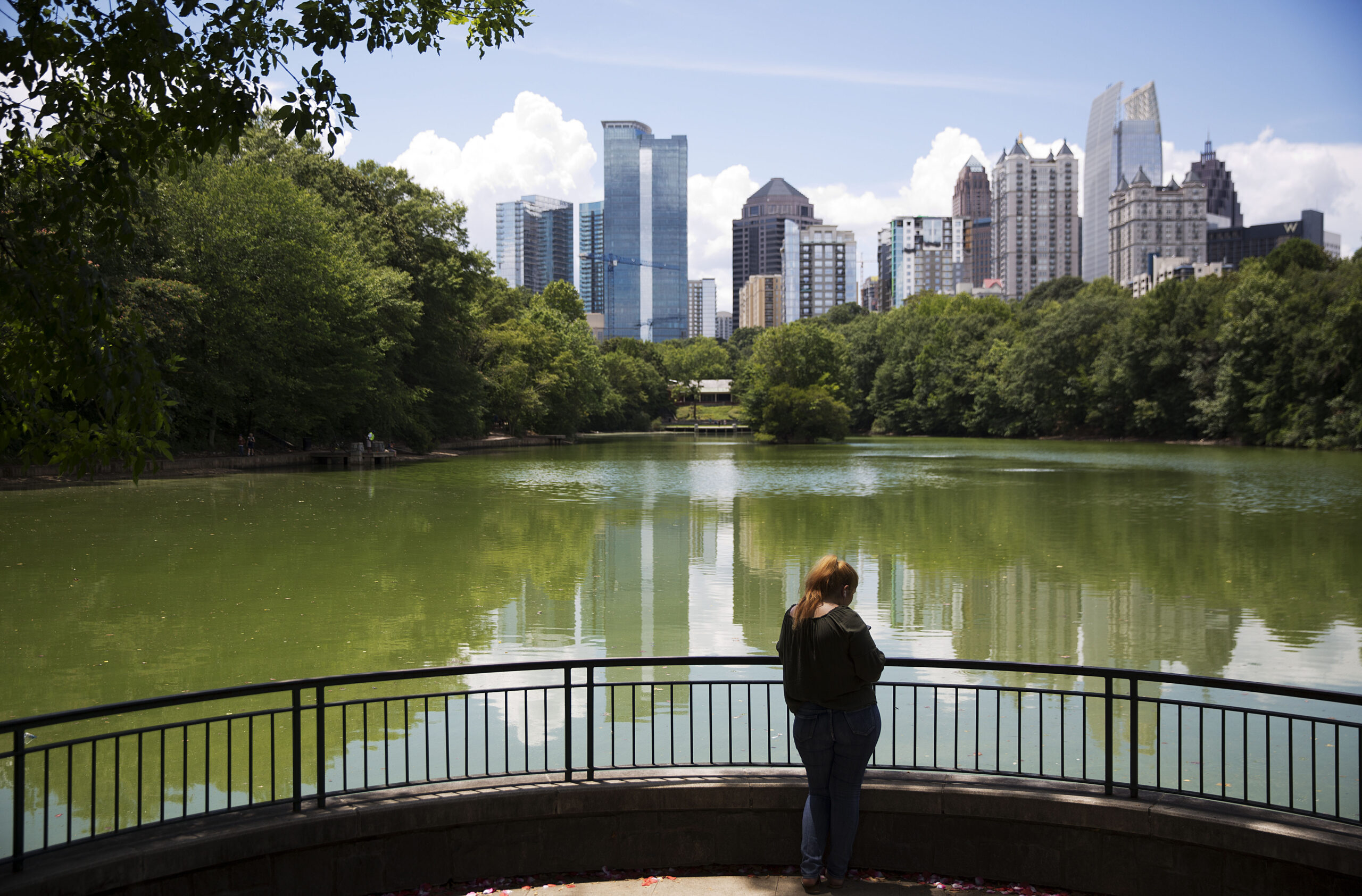Atlanta has set an ambitious goal for itself: To phase out electricity from coal, natural gas and nuclear power by 2035. Not just for city operations, but for everything and everyone in city limits: houses, offices, restaurants, the airport.
It’s one of a wave of cities that made similar commitments after President Donald Trump said he would pull the United States out of the Paris climate agreement. For a big city, it’s a big challenge. For Atlanta especially because of the way electricity is regulated here.
So how hard will it be for Atlanta to move its own municipal operations to what city council calls clean energy by 2025, and everything in city limits by 2035?
“It’s really, really, really hard,” laughed Megan O’Neil, energy programs manager for the Mayor’s Office of Resilience.
“Depending on the numbers you’re looking at, it’s two to six percent clean energy that we’re at right now,” O’Neil said. “To get to 100 percent for just city operations is on its own quite a big undertaking.”
When you start talking about private homes and businesses, she said, that’s a whole other story. But that’s what city council asked the city to do in a resolution passed last May.
The goal isn’t to switch to all renewable energy, like solar and wind. Instead, people developing Atlanta’s plan say it will take a combination of tactics: adding renewables, boosting energy efficiency and buying renewable energy credits to offset the rest.
“Energy efficiency is the biggest opportunity available to the city of Atlanta to produce clean energy. We have an awful lot of low-hanging fruit,” said Matt Cox, CEO of the Greenlink Group, the Atlanta company working on the technical aspects of the plan.
Cox said the clean energy goal is achievable.
“It’s absolutely doable,” he said. “There will need to be some aggressive actions taken, especially with the airport, since that’s about half of the city of Atlanta’s consumption.”
Another challenge for Atlanta is state law. In Georgia, customers can’t choose their electric company. They have to buy power from the utility that sells it where they live. Atlanta has to buy its electricity from Georgia Power. It can’t just go and buy more solar or wind power from some other provider.
“The biggest challenge the city of Atlanta has as it gets to 100 percent clean energy is it has to get there in a regulatory construct that really does limit its options,” said Shan Arora, policy manager at the nonprofit Southface Energy Institute, which is working with Atlanta on the plan.
At a recent community workshop in southeast Atlanta, about 60 people listened to presentations on how the city is developing its plan, and they offered feedback. Many weren’t even city of Atlanta residents.
“Clean energy is so important everywhere,” said Gloria Hallen, who lives in Snellville. “We’re really thrilled that the city of Atlanta is trying to be one of the leaders, and stepping out, and hopefully encouraging other areas to do this along the line.”
Jewel Crawford, a physician and professor at Morehouse School of Medicine, said given the regulatory issues in Georgia, she hopes that people stay involved.
“We’re going to have to work to move beyond those constraints. And so that’s going to take a citizen effort,” she said.
The plan is due to city council by the end of the month.








